Theatre for Two: An interview with Reptile playwright Macadie Amoroso
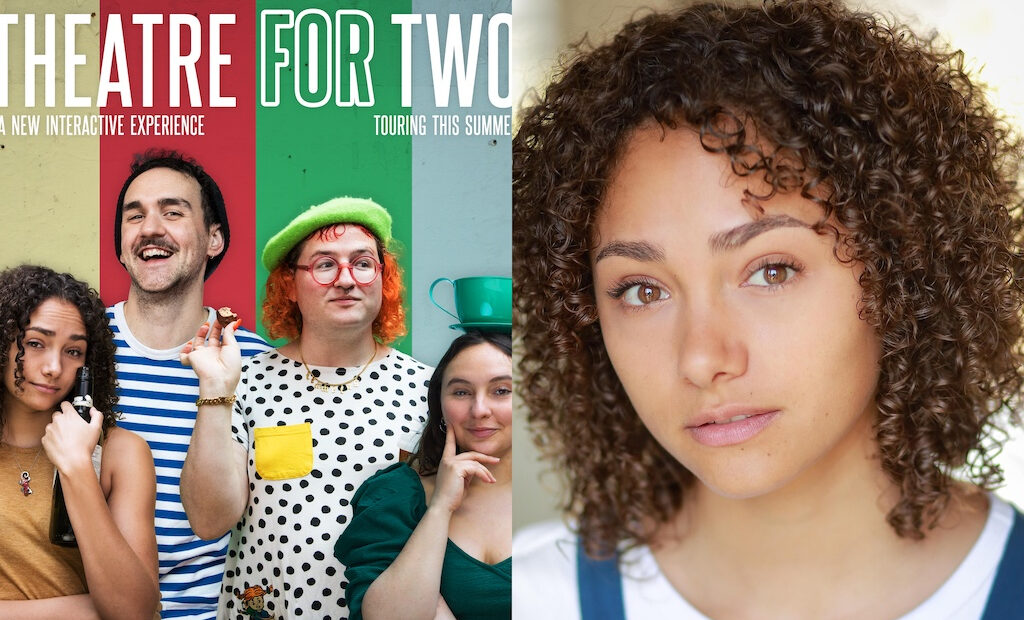
If there’s one thing the pandemic has taught us, it’s that human beings are not meant to be alone. This need for human company and camaraderie is the central theme of collaborative theatre company We Are Kilter’s new Covid-safe pop-up show, Theatre For Two, which showcases four micro-plays and brings the audience into the narrative. These performances will be accompanied by workshops for young people to explore ways of harnessing storytelling and playfulness. We caught up with Macadie Amoroso,writer of Reptile, one of the plays in this showcase, to find out more.
Where does the title Theatre For Two come from, and what do you hope the show will achieve?
The title comes from the idea of “tea for two” – something playful, light and intimate: meeting of people for a chat. We wanted to create something that celebrated the liveness of theatre and allowed audience members to be part of telling the story in a way that was safe and comfortable. In the plays, audience members can choose how much they want to be involved in the storytelling, and really it’s just a chance to get together and have a bit of a laugh! It also comes from the fact that there can be only up to two audience members at a time, to maintain that sense of intimacy and immediacy.
Are there any themes that connect these four plays?
Each play focuses on a character that is desperate for connection – a character that needs companionship or friendship or just someone to share a glass (or two) of wine with. These may be fleeting moments or become longer lasting friendships. That’s the thing at the heart of each of them. It’s really an upbeat celebration of the power of people to support each other through bizarre times. Each play does that in its own surprising way, so there is a common thread running through connecting four unique stories.
What was the inspiration for Reptile?
I was given a brief to create an interactive micro-play that is aimed at one or two audience members, and that focuses on a surprising or unusual relationship that could have been forged during a period of isolation. This got me thinking about my own experience of lockdown and how I feel very grateful to have been isolated with flatmates, because I don’t think I would have done very well on my own. If I’d been solo, there’s no doubt I would have been talking to inanimate objects, and this got me thinking about how talking to oneself is so often associated with madness, despite being a very normal thing to do. I then tried exploring the idea of assigning an inanimate object “character” to the audience without them knowing, and this led me on to the idea of using a pet instead. Pets see everything – they see us at our most vulnerable, our most ridiculous. It gave me lots of room to play!
Was there any significance in choosing a reptile as the companion in this story?
When I was younger I had a pet bearded dragon called Dakota, who I used to talk to all the time. However, unlike a dog, for example, it’s very hard to tell how a bearded dragon is feeling or what they may be thinking, so I thought this would be interesting to explore. I also thought, in terms of “surprising or unusual relationships”, it fit the brief very well!
How would you describe the character in Reptile?
The protagonist in Reptile is a very heart-on-their-sleeve type of person. They’re outgoing and funny, but they’re currently very lonely due to being in isolation, and also due to something that happened just prior to that, which has had a big impact on the way they’re experiencing their isolation. They’re an inherently flawed character and it’s questionable how much they are to blame for their current predicament, which hopefully begs the question of how reliable a narrator they are, and whether the audience should feel for them or not.
Are these stories centred around the pandemic, or more about the need for companionship in general?
These aren’t plays directly about the pandemic, or about lockdown. We’ve used the pandemic for inspiration, but they’re definitely not pandemic-specific. It’s more about the broader feeling of isolation and, like you said, the need for companionship. I think the human race is inherently social; we need connection and love. I don’t think we would have survived as long as we have without it.
How has the pandemic affected your job as a writer? Did you find new inspiration in these strange times?
It’s been a weird one, for sure. I’m also an actor, so that’s definitely been affected by the lack of theatre over the past year, and also graduating from drama school into a pandemic wasn’t the easiest. At the start of it all, I felt very creatively stunted and lacking in inspiration, but, as time’s gone on, I’ve really developed some ideas I’ve had much more concretely. In a way, I think my writing has benefitted from having the time to think and formulate my ideas, and also from having people in my network who are very kindly willing to take the time to listen to me running ideas by them! It’s just job-wise that hasn’t benefited as much, so I’m very grateful to We Are Kilter for asking me to be a part of this wonderful project!
Do you think the theatre can help people feel connected in a way that other mediums – like TV or film – can’t? Is that something we’ve been missing in the last year?
100%. The liveness of theatre is really unlike any other medium. You’re not just sharing that experience with the people you go with, or the actors, you’re sharing it with every person in that room at that time. No two audiences will be the same or react the same, the feeling in the room will change on a night-to-night basis, and I think that’s really special as it’s very difficult to capture that elsewhere. A lot of people I’ve spoken with are desperate to see live theatre again, so I really do think it’s something we’ve been missing – a different and far more lovely kind of shared experience than the pandemic.
What’s next for you?
The big question! I’m currently writing a pilot for a TV series idea I’ve had for a while, so I’m hoping to get that polished, so I can a) find literary representation, and b) shop my script around production companies. I also have an idea for a play I want to write about a father and daughter relationship, so once I’ve polished the pilot, I’ll be onto that. Other than that, keeping on writing, keeping on acting, and staying optimistic!
Sophia Moss
Theatre for Two is on at various venues across London from Saturday 5th June to Wednesday 7th July 2021. For further information or to book tickets visit here.










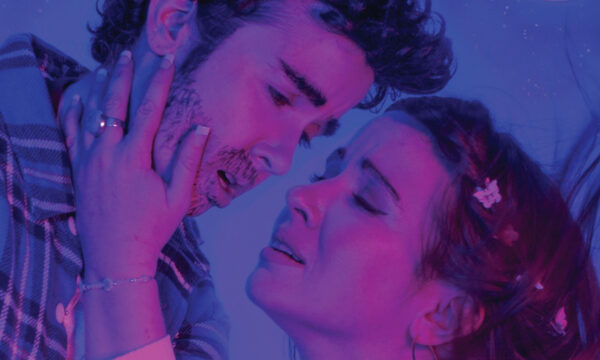





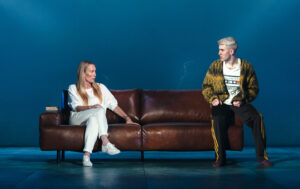


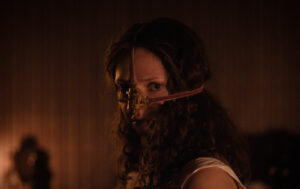





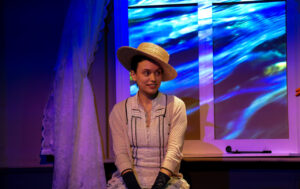
Facebook
Twitter
Instagram
YouTube
RSS